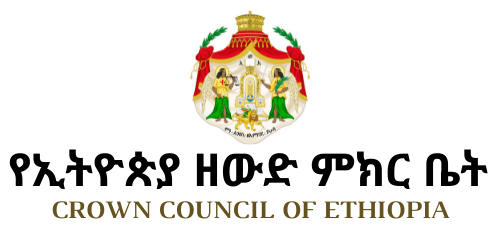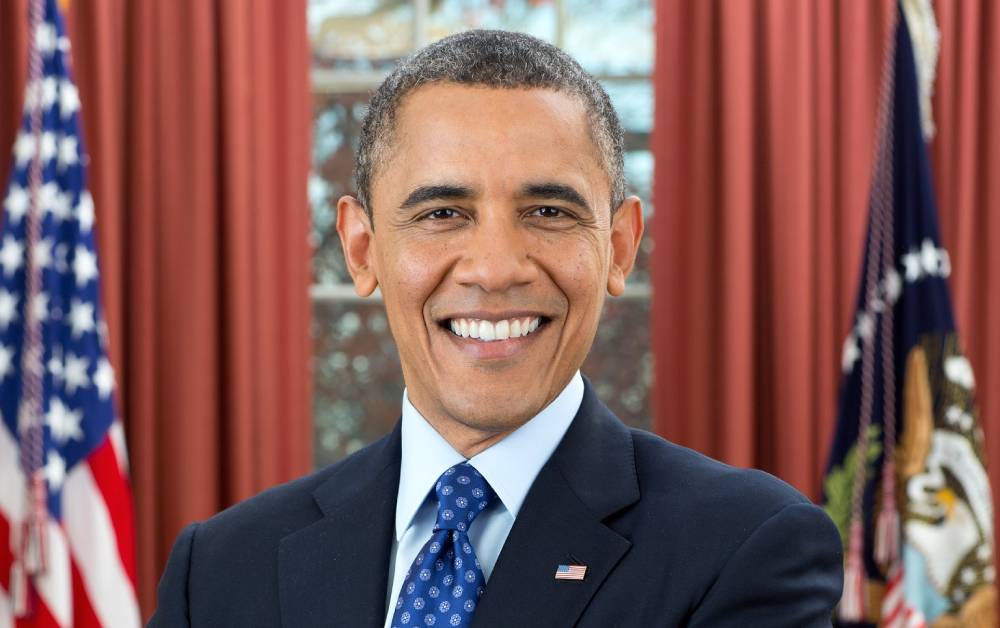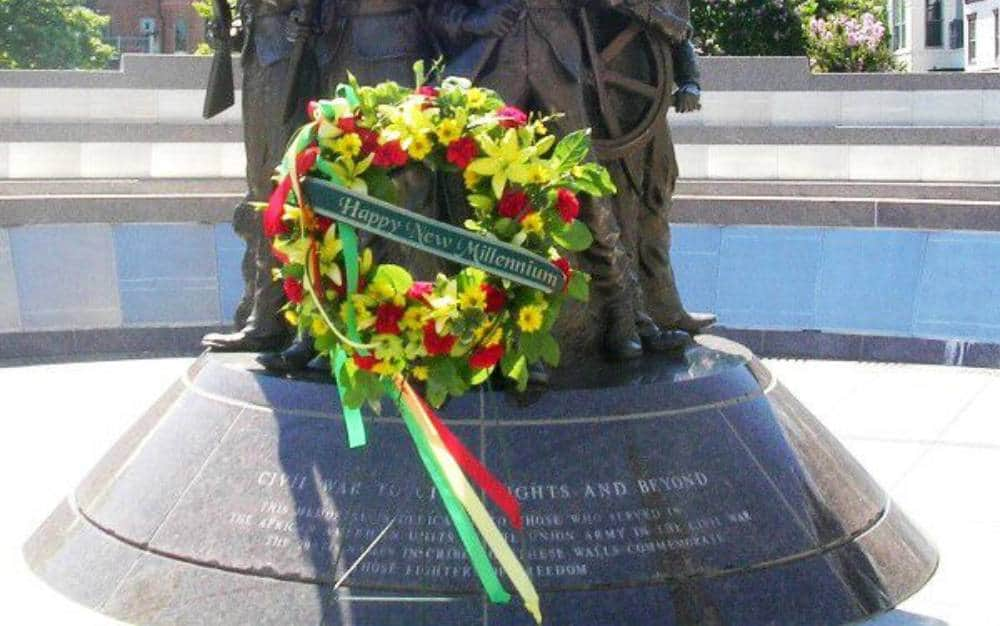By the beginning of World War I in 1914, initial African resistance to the invading European colonials had been effectively crushed and the whole of Africa had been colonialized – with the exceptions of Liberia and Ethiopia. Over the next decade, as colonial rule became more institutionalized and heavy-handed, African resistance to colonialism reappeared, becoming increasingly focused and intense.
In the late 1940s and early 1950s, new mass-based political parties appeared in virtually every African colony. Unlike earlier African political organizations, these parties were not restricted to the educated African elites, and actively recruited the support of the masses, even as the cause itself was re-focusing. Expanding beyond traditional African political demands for more opportunity and an end to discrimination, the continent’s central demands were for complete political freedom and an absolute end to colonial rule.
The dynamic and speedy re-emergence of African nationalism took European colonial powers by surprise. The Italians and the British, followed by the French and then by the reluctant Belgians, eventually responded to the call for independence.
Libya (1951) and Egypt (1952) were the first African nations to regain independence. Ghana (Gold Coast) in 1957 was the first country south of the Sahara to become independent. 1960 was a banner year for African independence as fourteen African nations gained their independence; and by 1966, all but six African countries had become independent nation-states.
THE PROMISE OF INDEPENDENCE
Independence was supposed to bring with it legitimacy and accountability as well as the establishment of a new social contract between African citizens and the state. The institution of the state as a ruling body was adopted in Africa as a useful residual remnant of the colonial system of governance. The State structure was adopted by all former colonies as a viable and effective mechanism for the efficient exercise and administration of supreme political authority. Of course, ostensibly, the supreme, absolute, uncontrollable power – the complete right to govern – was ultimately vested in the people. Sovereignty, therefore, implied the necessary existence of the state for the legitimate application and exercise of the power, in implementing the public will in civil and political matters.
THE REALITY OF INDEPENDENCE
In the near half-century following independence, it has become increasingly evident that the promise of the three fundamental human rights of safety, liberty and property, that independence was meant to confer on the former colonies, has not been realised. For Africans in general, the power of being able to enjoy a permanent well being, irrespective of the disposition of those from whom Africa calls itself independent, has yet to be realised. Many post-colonial African economies are yet to be democratized and history in this regard is important. The baggage of the past – institutions, customs etc. – tends to distort the manner in which Africans respond to the economic opportunities available to them. It is an unarguable truth that the contemporary identity of Africans has been largely shaped by its colonial past and the Soviet/U.S. Cold War contention that followed.
Africa’s collective understanding of the challenges and opportunities of independence are largely shaped by Africa’s unfortunate and frequently brutal past. Race too is a major factor in shaping the worldview of many Africans, to the extent that any failure to seize opportunities has been blamed on the historically defined racial architecture. It has been easy, for example, to allege (with cause) that white people in Africa were enriched economically by the politics of their day. It was, therefore, justifiable for many Africans to claim that whites were rich because Africans were poor and whites had to be rich because they controlled the colonial state. Fair enough as far as it goes, but one would have naturally expected that the advent of independence would diminish the pace of wealth accumulation by non-Africans. However, the fact is that the post-colonial era has strengthened, rather than weakened, the economic power of non-Africans and the political apparatus of the state has become monopolized by a few Africans in a system where cronyism and political patronage still flourish. Indeed and unfortunately, it is a common African perception – perhaps not all that unlike the impressions of Europeans and Americans – that the most certain and speedy path to personal prestige, wealth, influence and independence is via the capture, by hook or crook, of high political office.
Candidly speaking, the transfer of state control from white Europeans to Africans has not yielded the intended economic benefits for the majority of Africans, and the link between the nuances of economic and political power must be better understood if Africa’s prospects are to improve.
THE COLD WAR AND AFRICAN INDEPENDENCE
Though Africa is far removed geographically from Washington and Moscow, the continent has unfortunately provided a perfect “arena” for these two politically and economically contending superpowers to embroil their willing African “gladiators” in constant rounds of seemingly endless proxy wars. These Cold War confrontations have proven disastrous for African development, and by manipulating and accentuating ethnic rivalries have played a major and continuing role in the continents civil wars – Congo, Angola, and Sudan for example, and rampant coup d’états in Ghana (1966) and Congo (1960) – Somalia, Eritrea and Ethiopia present day.
In Africa (as in Latin America and South Asia), the American/Soviet Cold War struggle for dominance precipitated a series of devastating consequences – e.g. colonialism, “artificial” national borders, Inter-Africa rivalry for land and political power, etc. The calculus of great power contention pitted unwitting African ethnic groups against each other and African nation against African nation – Angola vs. South Africa vs. Namibia, for instance.
The abrupt end of the Cold War (1989-1991) was both as unanticipated as it was unprecedented; no one expected matters to end when and in the manner they did.
The African conventional wisdom had been that the end of the Cold War marked the end of Africa’s victimhood as pawns in Washington and Moscow’s proxy battles. Finally, it seemed, the stage was set for Africa to concentrate on securing its rightful place in the world and creating a better life for its people. Unfortunately, however, the war’s ending was to be something quite different, the unleashing of civil strife unmatched in the history of contemporary Africa. The war’s end marked the outbreak of even more civil wars, strife and general political chaos. West Africa in particular literally went up in flames: Liberia burned; Sierra Leone imploded and the Ivory Coast went helter-skelter. In the Eastern and Central Africa, Uganda, Congo, Rwanda, Burundi too were caught up in savage conflagrations. The southern region of Africa witnessed growing wars in Angola and Mozambique, while fighting escalated in the perennial hotspots in the Horn of Africa—Ethiopia, Eritrea and Somalia.
During this same period, and from my personal perspective as an Ethiopian, few tragedies in the history of nations compare to the communist coup that led to the 1974 arrest, and subsequent death by torture, of my grandfather The Last Christian Emperor, His Imperial Majesty Haile Selassie I.
In 1974, Washington and Moscow’s ubiquitous Cold War contentions on the African continent converged to precipitate a collateral calamity of epic proportions for the Ethiopian people and their venerable and millenias old Empire. By deposing, torturing and murdering the Emperor Haile Selassie, the Derg, a communist military junta led by a brutal ideologue and revolutionary, Mengistu Haile Mariam, had destroyed the Emperor’s passionate and relentless drive for modernity and stifled a benevolent and progressive governance. Once known as the “conscience of the world”, Ethiopia, was quickly engulfed by a brutal and propagandizing communism that transformed our respected nation into a tragic collection of warring factions and fractious ethnic states, with little unity, crumbling infrastructure, crushing poverty, and frequent bouts of famine and disease. Indeed, during the 1980s, the name of Ethiopia became synonymous with human misery.
In their cynical ideological tumbles across the African continent, the contending Cold War superpowers had manipulated, exploited and exacerbated Africa’s tender and extant Post-Colonial ethnic, religious and regional rivalries. Consequently, ethnic and religious differences became increasingly focused and intransigent – inevitable flash points for violent conflict. But while the African proxy wars of Washington and Moscow had inflamed the continent, ironically, it would be the eruption from the fall of the Berlin Wall that showered fiery embers of discontent, conflict, social upheaval, traumatized refugees, displaced populations, massive arms flows, mismanagement, public corruption and general unrest across the width and breadth of Africa. The confident optimism that had greeted the Cold War’s end and the widely held belief that the decade of the 90s heralded a new future for Africa revealed itself as sheer fantasy.
THE PRESENT SITUATION
Will Africa get it wrong again? The encouraging spread of democracy and fall of military juntas and dictators—historically the scourge of Africa’s progress— portends a better future. At present, there are more African democracies than ever before including – Benin, Ghana, Mozambique, Nigeria, Senegal, South Africa and others. This has already reaped huge economic benefits for the continent as many African countries (Ghana, South Africa, Botswana, etc) and what I term the nascent Democracies – Ethiopia in particular – are registering economic growth rates of 5% or higher. The fall of military dictatorships suggests that an increasing number of African nations are now better governed and more politically transparent.
The present concern is can the institution of democracy peacefully prosper in Africa without confrontation and conflict. Democracy is a recent phenomenon on the African continent, and there are significant political remnants from the previous era that benefit from historic systems of corruption and tyranny. Moreover, even the system of democracy itself has its own flaws that in many instances tend to accentuate fundamental and already existing differences.
During this hopeful moment for Africa, a period of relatively increasing peace and domestic harmony, major continent wide problems remain concerning de-militarization, integration and assimilation of large, poorly educated and semi-nomadic populations into stable political entities and civil society. Also, instilling habits of stability building social values, respect for the rule of law, free elections and human rights will not be easy. Add to this the fundamental African issues of persistent and widespread poverty, little or no education, lack of health care and food shortages etc. and the challenges remain sobering.
THE FUTURE: ETHIOPIA SPECIFIC
Experience and common sense inform us that generalizations can be deceiving and that the perfusion of rich regional cultures and diverse historic experiences of the African people defy neat categorization. I agree and in my comments, I have used generalizations, but only insofar as they are accurate and pertinent, and now I will address the specific future, as I see it, for my country, Ethiopia, and its nascent democracy.
Increasingly, Ethiopia is being acknowledged as the genesis and true cradle of human civilization. African cultural diversity flourishes in our country in an exotic profusion of unique and extraordinary beauty, and sometimes-deadly passion. Thus, there is the immediate necessity to develop an encompassing, Pan-African culture of “Bridge Building” promoting understanding and tolerance between people – not by edict and force, but through enlightened agreement and consensus: one-on-one diplomacy.
Enlightenment, of course, derives from education, which requires good health, which requires dependable food supplies, which requires stable economics – and thus, the challenge and promise for the new African Millennium become clearly framed:
- Culture,
- Education,
- Health,
- Food and
- Economics.
ECONOMY
While it is well known that the African continent with its roughly 680MM inhabitants is the only region in the world where the number of extreme poor has actually risen over the past fifteen years, it is less well known that prior to the current global economic downturn, African countries were experiencing major improvements in key development fundamentals.
Still, poverty persists at the core of Africa’s problems. Moreover, and due to the current global economic malaise, some Sub-Saharan countries are anticipated to suffer economic instability, as 2009 economic growth rates are projected to decline 50% on average. Most of Sub-Saharan Africa is already in the World Bank’s lowest income category of less than $765 Gross National Income (GNI) per person per year, and I am unhappy to report that Burundi and Ethiopia are among the region’s worst performers with a disgraceful $90 GNI per person.
On a more encouraging note, and though peace remains fragile in some regions of the continent, overall, Africa is experiencing a decline in political conflicts and wars – especially in West and Central Africa – and after all, all wars inevitably obey the same brutal economic rubric:
War equals destruction, equals impoverishment, equals social disruption, equals out-migration… Our own Ethiopian Diaspora being a specific case in point.
HEALTH:
Unfortunately, Ethiopia’s health issues are typical of Sub-Saharan Africa. Our population has reached more than 77 millions inhabiting a landlocked area slightly less than twice the size of the U.S. state of Texas. As is usual for most of Africa, HIV/AIDS is an enormous problem, as are many other infectious diseases such as diarrhea, hepatitis A and E, typhoid fever and malaria. First and foremost, we must educate our children, and through them, their parents, to improved hygiene, health care and nutrition.
As I have earlier noted, unless a person is healthy and fed, she has no energy or enthusiasm for anything else.
Governments have recently been joined by a long list of private donors and dynamic advocates such as Bill and Melinda Gates, Warren Buffett and Bono whose contributions and commitment to Africa’s war on poverty and disease are both inspiring and humbling. Thanks to their efforts, there are now billions of dollars becoming available for health spending — with thousands of nongovernmental organizations (NGOs) and humanitarian groups vying to spend it.
Unfortunately, decades of neglect have rendered local hospitals, clinics, laboratories, medical schools, and health talent dangerously deficient and much of the cash now flooding the field leaks away without substantive result.
Few of today’s well-intentioned donors seem to appreciate that Africa’s health care problems are a long slog, and will require at least a full generation (if not two or three) to substantially improve — and that efforts should focus less on particular diseases than on holistic measures that affect entire populations’ general well being.
EDUCATION:
As I noted earlier, Education is surely the single most effective and immediate way to improve the lives of all Africans. As in any nation, our Ethiopian youth represent the country’s best hope for the future.
In concert with this educational focus, we must target our training to prepare Ethiopia and Africa’s youth for the most immediate, practical and productive jobs of the future, with a strong emphasis on technology.
Help in this regard has appeared unexpectedly from the two most revolutionary and empowering inventions for accelerated self-help and social and economic development that the world has ever seen – the Internet and the cheap Net book type computers.
The force-multiplying potential of these two revolutionary devices affords all people (under-developed nations in particular) the opportunity (and ability) to literally leapfrog the traditional business models, timetables and infrastructure costs that “More Developed” nations have taken to industrialization and economic development. In this revolutionary and historic moment, we Africans are realizing that virtually instantaneous and incredibly inexpensive access to the sum total of all human knowledge (and experience) lies immediately at our fingertips via the Internet. Moreover, inexpensive, direct and virtually instantaneous contact with the Global Community can be established cheaply and at will.
Through computerized and Internet distributed remote learning, we can now share information and instruction faster, more efficiently and richly than mankind ever dreamed possible, and this revolution is only just beginning. The implications for bridge-building, cultural development and learning are unprecedented, and encompass every aspect of human endeavor, from healthcare to sophisticated telemedicine and beyond.
Power technologies are also evolving and increasingly decentralized – with semi-autonomous power generation in the forms of solar, hydro, wind and geothermal available and becoming increasingly cost effective.
Today is a time of miracles for humanity and no one can fully grasp the spectra of possibility – but I am convinced that the implications are both revolutionary and unprecedented in human experience. This is our moment, the time when underdeveloped nations can catch up, contribute and fairly compete – even with the most advanced societies, and in a profoundly shorter time span than virtually anyone could have imagined 20 years ago.
Let us all commit ourselves to pray and work for enduring peace, prosperity and good will in the world. Let us also pray that during this new African Millennium, we Africans realize the full promise of our independence by finding the wisdom to consolidate our victories and banish forever the unwanted baggage of colonialism, Cold War, underdevelopment, poverty, cultural malaise and disease from our lives.
May God bless Ethiopia and Africa.
Thank you for your warm hospitality, kind attention and interest. HIH Prince Ermias Sahle-Selassie Haile-Selassie Chairman – The Crown Council of Ethiopia

















